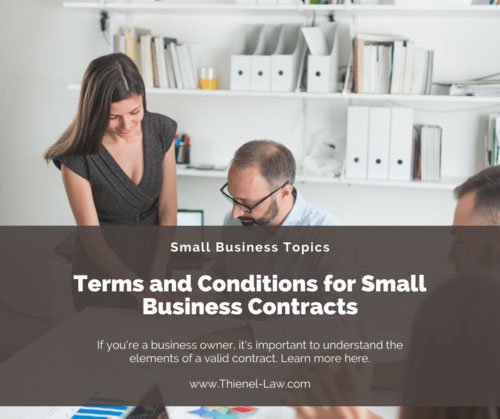Selling Your Business - Purchase and Sale Agreements
Negotiating a Purchase and Sale Agreement is the next step in the process of selling your business after you and the buyer complete your due diligence research. The Purchase and Sale Agreement is the legally enforceable contract between you and the buyer for transferring your company. The agreement contains the terms and conditions of the transaction.
Before negotiating a Purchase and Sale Agreement, it is vital to understand the contents of the agreement. An experienced Maryland business transactions attorney can draft a Purchase and Sale Agreement that is tailored to the individual transaction. However, a basic contract typically contains certain terms that are standard to all Sale and Purchase Agreements.
Contents found in a typical asset Sale and Purchase Agreement include:
Party Identification - The names and contact information for all parties to the agreement. If counsel represents the parties, that agreement reflects that information too.
Name of Company - Legal name and location of the business.
Assets - Complete list of all assets included in the transfer. Assets in the sale of a business often include the business name, fixtures, equipment, inventory, accounts receivable, goodwill, customer lists, furnishings, and other business items. Both parties must review this section carefully to ensure that they understand any exclusions of assets.
Liabilities - Complete list of liabilities being transferred, including accounts payable, loans, lines of credit, lease agreements, etc. This section is also important because the seller needs to ensure the release from personal liability for company debts.
Closing Date - The closing date for the sale and the date of actual possession, if different.
Purchase Price - The purchase price is set forth in the agreement, including the allocation of the purchase price between various assets. The allocation of the sales price can be very important for tax considerations. This section may also include any pricing allowances and payment terms.
Seller Agreements - Seller agreements may include retaining the seller for a period as a consultant, non-compete agreements, and other agreements the seller might include to close the deal.
Default Provisions - Default provisions explain the legal consequences if either party defaults on one or more terms or conditions within the agreement.
Seller’s Representations and Warranties - In this section, the seller certifies that the seller has the authority to sell the company and transfer the assets to the buyer through a clear, marketable title. The seller represents that the seller does not know of any liabilities or obligations other than those outlined in the agreement and that all financial records are accurate and complete.
Within this section or in a separate section, the seller promises to take certain steps to protect the company and assets through the closing date, such as paying employees, maintaining insurance, transferring benefit plans, and paying liabilities.
Buyer’s Representations and Warranties - In this section, the buyer certifies that the buyer has the authority to purchase the company (if acting on behalf of another legal entity) and the financial means to purchase the company.
Transfer of Business Documents - This section refers to transferring various business agreements, licenses, or other documents, if applicable.
Post-Closing Agreements - This section may include various agreements with the seller and the buyer regarding the duties they agree to perform after the closing. For instance, the seller may agree to maintain insurance for 30 days to allow the buyer to obtain insurance coverage.
A Maryland Business Attorney Can Make Things Easier
The above list is not exhaustive. Purchase and Sale Agreements tend to be complicated, lengthy contracts because they need to cover every aspect of transferring the business to the new owner. Even the transfer of a small business requires an exhaustive agreement to protect the interests of both parties. It is usually best to consult a legal professional before beginning negotiations to sell your business. Contact Maryland Business Attorney, Steve Thienel to discuss your options when purchasing or selling a business.





